A Religious Reflection on the ‘What, How, and ‘Why’ s of Family
I was watching the MAS-ICNA youth talk on YouTube, and the speaker was a young woman. Amongst many things she said, she also talked about family. She quoted the Prophetic hadith, “The best amongst you is those best to their families” [1], which made me think: What makes family a yardstick to measure the best people? Isn't family an over-rated idea? Aren’t there other aspects to measure good character, like charity or providing for orphans?
Family Concept in the Prophetic Traditions
In Islam, the attitude towards one’s family determines their relationship with Allah. Narrated by Abu Huraira: The Prophet (ﷺ) Said, "The word 'Ar-Rahm (womb) is derived from Ar-Rahman (The Most Merciful), and Allah said: 'I will keep good relation with the one who will keep good relation with you, [womb (Kith and Kin)] and sever the relation with him who will sever the relation with you.[2]
Honouring parents is a huge part of respecting family rights, which affects familial stability. Yet, because the bars are very high, most people fail here. There is the story of Uwais Al Qarni, a Yemeni who longed to visit the Prophet (ﷺ) and be a Ṣahabī but stayed back for his mom. By the time he came to Madinah, the Prophet (ﷺ) had united with his Lord. Narrated by Umar (ra), the Prophet (ﷺ) said: “There would come to you Uwais b. Amir, of Qarn, a branch of the Murid tribe, along with the reinforcement of the people of Yemen. He had been suffering from leprosy which would have been cured but for the space of a dirham. His treatment with his mother would have been very kind. If he would take an oath in the name of Allah, He would honor it. Ask him to beg forgiveness for you (from Allah) in case it is possible for you.” [3]
Fulfilling his mother's rights, even sacrificing the companionship of the Prophet, earned him the status of a privileged man, being respected even by the actual companions of the Prophet. This status went to the extent that they even requested him to seek forgiveness from Allah. Another story from Sahih Bukhari talks of a pious man named Juraij, who remained in prayer despite his mother calling him, which disappointed her and cursed him at one point. Although Allah saved him from the crisis [caused by the curse], eventually, he was humiliated at first because of his mother’s displeasure.
Family rights are not restricted to immediate but are expanded to all extended members. For instance, siblings of parents must be treated like parents in terms of respect and affection. This concept has practically been shown by the Prophet (ﷺ) when he asked Asma and Jafar to be the guardian of Al- Barrah, the daughter of Hamza, after the latter’s demise. Because Asma (r) was also her maternal aunt, he (ﷺ) said: "The maternal aunt is like the mother." Similarly, When Prophet (ﷺ) sat by Al-Abbas (r) and praised him, Abbas (r) replied that he did not deserve it. The Prophet (ﷺ) responded: “Why should I not honor you in such a way when you are my uncle?! You are what is left of my father. The paternal uncle is like father.” [4]
Another example of maintaining kinship is when Ubayy bin Salūl smeared Aisha (r), wounding her father, Aboobacker (r). Mistah (r), a cousin of Abūbaker (r) who took financial help from him, had a role in transmitting the dirt. The latter felt betrayed, obviously. Plus, the Prophet and Aisha were the most beloved to him; and their anguish was his as well. Siddiq (r) vowed to never help Mistah again. But, Allah revealed the following verse:
“The men of grace and wealth among you should not swear against giving to the kinsmen and the poor and to those who have migrated in the way of Allah, and they should forgive and forego. Do you not like that Allah forgives you? Allah is Most-Forgiving, Very-Merciful.” [5]
Here, Mistah (r) was included in all three categories. Besides mentioning that he was a Muhajir and poor, Allah appealed to Abūbaker (r) by his kinship. Although Mistah (r)'s actions grieved Allah’s most beloved servants, Allah himself intervened and asked to maintain the kinship, asking Abūbakar(r), “Do you not like that Allah forgives you?” [6]
In another Hadith, it was narrated by Anas bin Malik: "Anyone who wants to have his provision expanded and his term of life prolonged, should maintain ties of relationship.” [7]
This is interesting because Allah removes the exact two things that prevent a person from maintaining kinship; fear of exhausting resources and decreasing lifespan.
The ‘Why’ s of a Family
Individuals, as primary units of society, are the outcome of a family structure. The presence or absence of family, the relationship between family members, family atmosphere etc., affect one's perspective. The same resources provided to children of different families create different outputs. Unfortunately, families see the ugliest side of individuals, to the extent that most dining tables today emit only stress and fatigue due to the disastrous social conditions which keep the family concepts away.
It is often misconceived that outbreaks on family members go down the sink, with no external effect. However, the fact is, one's behavior within a family affects society in the long run. That is, a mother’s positive or negative influence on children affects the latter’s functioning as citizens. These affected Individuals influence other people or communities in good or bad ways. Sometimes, out of stress, parents blame children for their miseries, thinking of them as sponges to absorb their emotional outbursts stirred by marital, financial, or psychological issues. Such parental habits gradually contribute to a severe social malfunction, that is lack of children with adab or a sound moral character. “Maltreated children and adolescents tend to be angrier, frustrated, reactive, and irritable than their non-maltreated peers. In particular, physically abused children and adolescents may experience overwhelming emotional arousal that leads to difficulties managing and processing negative emotionality.” [8]
In addition, the approach of family members causes individuals to draw conclusions on society, ideologies, or even religion. For instance, religion is blamed for most gender issues, when most of them are cultural problems or perhaps family problems. This is a crisis because, by debating over issues without resolving emotional or cultural triggers that caused them in the first place, we’re not solving problems. Human beings are not solely intellectual but also emotional beings. So, people’s ideological choices are not guided by intellect alone, but also by emotion. Families hold significance here. Changes and cultures sprout from families.
Compared to other influences, like books or speeches, family is a long-term instrument for nurturing an individual. How other influences affect a person is dependent on their family atmosphere. In short, a family structure is always vital in building societies, and thus, the more one contributes to the family, the more he/she enriches a society.
Reasons for the Hardships of Maintaining a Harmonious Kinship
- We are concerned about how ‘others’ in the room take us when we risk something. With families, risks are less. The internet is filled with resources on charisma at work or being perceived as ‘cool '. Only a few people actually take time and effort to be a better father or daughter. We think of what others think of us but less about what our mother would. Would others still think of you as cool if they were to see you from your father's perspective? Do your kids attribute you 'charisma’, like your workmates? Character building of oneself at home is necessary. The prophet is said to have the best behavior with his family, and he is the best of people.
- Proper communication within the family is taken for granted. Often, conversations within the family are restricted to duties and responsibilities, whereas they are not connected to the emotional and moral interests of each member of the unit. Such situations are rampant to the extent that talking with parents or spouses, increases stress and gives a feeling of confrontation. Most parents don’t realize that while crafting perfection out of their children, they lose their son and daughter. As per early scholarly sayings, a child is to be played with for the first seven years, taught the next seven years, and befriended, for the next seven.
- Functioning within a family is also challenging because ‘modern’ narratives victimize everyone, making selfishness the new requirement for ‘survival of the fittest’ even in a family setting. Feeling denied of rights, everybody is fighting for them. If everybody you meet is a denier of your rights by ‘modern’ standards, how is a culture of co-existence possible?
In conclusion, family’s effect on society is unquestionable. Despite all its limitations and shortcomings, a family structure is vital for actualizing many existential dimensions of a society, and therefore, everyone should take the role in maintaining its smooth running, no matter what he or she is. Healthy families produce healthy citizens, motivating to cause societal benefit, making more room for empathy and less mental pressure. Family is a yardstick for shaping individual and social character because it works within an already determined framework and gives the best output.
References
[1] Mishkat al-Masabih 3252, 3253
[2] Sahih al-Bukhari 5988
[3] Sahih Muslim
[4]40 Hadeeth on social justice, Omar Suleiman, Yaqeen Institute
[5] 24:22, The Holy Qur’an
[6] Al Adab-ul-mufrad 56
[7] J. Kim, ... K. Deater-Deckard, in Encyclopedia of Adolescence, 2011
[8] Encyclopedia of adolescence/B. Bradford Brown, Mitchell J. Prinstein, 2011
Sundus is a BA student, at Escola International.
Disclaimer
The views expressed in this article are the author’s own and do not necessarily mirror Islamonweb’s editorial stance.

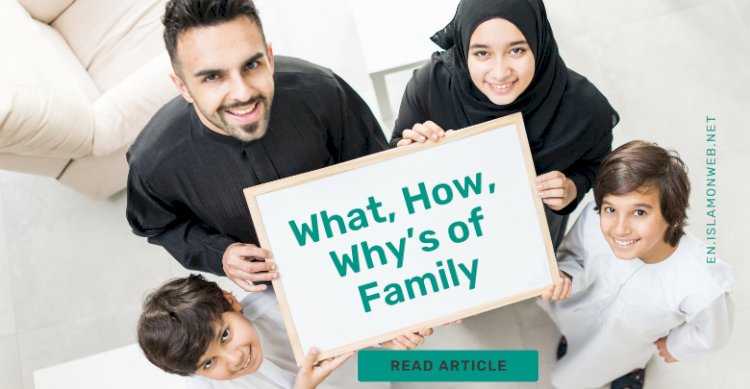


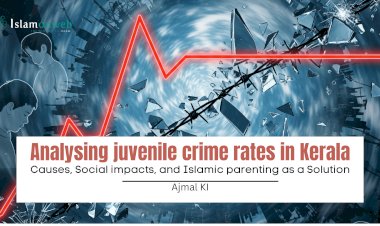

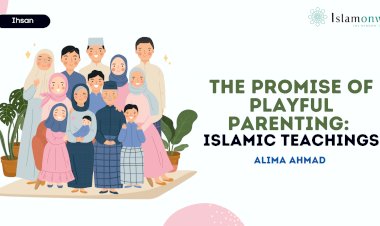
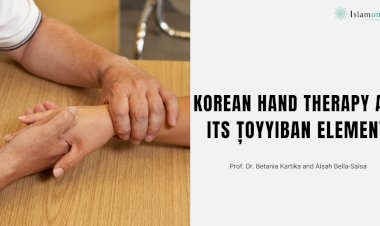
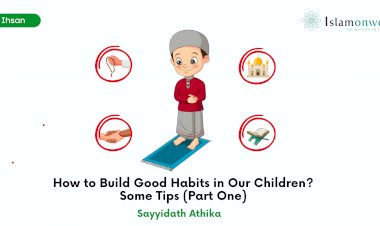
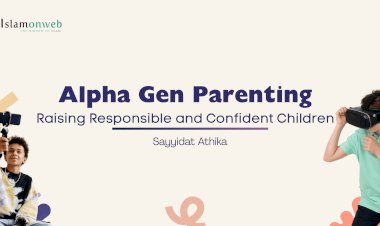














Leave A Comment